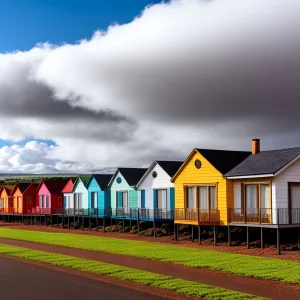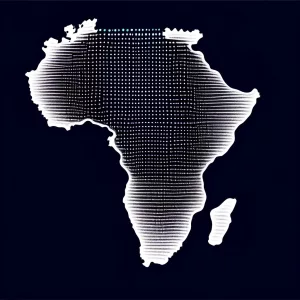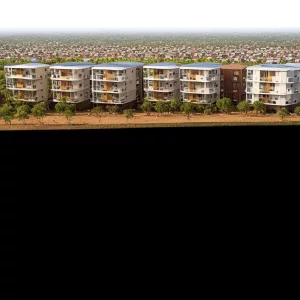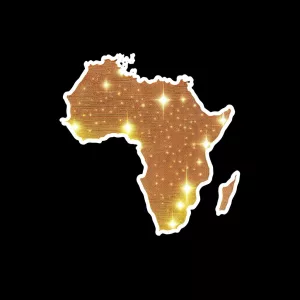Paul Mashatile envisions South Africa as a leader in renewing the global economy by focusing on industry, green energy, and digital technology. As the G20 Chair, he pushes for fair and lasting growth with strong partnerships worldwide. His hope is to build stronger, greener industries in Africa that create jobs and protect the planet. Mashatile’s vision is bold and hopeful, inviting the world to work together for a future where Africa plays a key role in global progress.
CocaCola might switch from highfructose corn syrup to cane sugar because many people want more natural ingredients and the old, familiar taste. This change has sparked a big talk about what sweetness means to Americans—not just flavor, but history, health, and identity. For some, cane sugar Coke brings back warm memories and feels more real, while others see it as a symbol of a simpler, truer America. Whether or not the switch happens, the debate shows how deeply food connects to culture and who we are.
The Subtle Thrill of Instant Gratification: Understanding South Africa’s Digital Impulse Shopping
In South Africa, digital impulse shopping is booming because it is fast, easy, and taps into our cravings for comfort foods and drinks. Apps like Checkers Sixty60 and Woolworths Dash make it simple to buy treats like muffins, sugary sodas, and beer with just a few clicks. These online platforms cleverly use bright images, special deals, and personal recommendations to tempt shoppers into quick, satisfying buys. Beyond just snacks, digital impulse purchases reflect local culture, moods, and special occasions, turning everyday cravings into a shared, modern ritual.
Wings in Waiting: FlySafair’s Pilot Dispute and the Broader Story of Labour in South African Aviation
FlySafair’s pilots are upset because they feel their pay, work hours, and conditions aren’t fair, even though the airline offered a 5.7% raise. Backed by the Solidarity union, the pilots might strike, which could cause many flight delays and cancellations. This dispute shows bigger problems in South African aviation, where pilots and airlines often clash over fair treatment. The airline is trying to keep passengers informed and calm, but the future looks tense as both sides struggle to find a solution. This fight is a clear sign of the tough balance between workers’ rights and running a smooth airline.
South Africa faces a big challenge as the US plans to add a 30% tariff on many exports starting in 2025. This hit will hurt important industries like carmaking and steel, and also make citrus fruit and wine much more expensive to sell in America. Thousands of jobs in factories and on farms could be lost, hurting local communities. South Africa must find new markets and work hard with US leaders to soften the blow. Despite the storm ahead, the country’s people stay hopeful and ready to fight for their future.
Between Realism and Resilience: The Shifting Landscape of South Africa’s Residential Property Market
South Africa’s home market is changing slowly, with people taking more time to buy and sell due to higher prices and economic struggles. Many sellers are downsizing to smaller, easiertomanage homes, while new buyers, especially young adults and women, prefer safer, lowmaintenance sectional title properties. Rent is rising too, pushing many to save harder for their first home. Though challenges remain, careful buyers and sellers who understand these shifts can still find good opportunities ahead.
Refreshi is a smart South African app that fights hunger and food waste by linking businesses with extra food to people who want to buy affordable surprise bags. Every day, many good meals go to waste while many families go hungry, but Refreshi turns this problem around by making surplus food exciting and accessible. Users buy mystery bags filled with tasty leftovers at a discount, helping the environment and their communities. This simple idea creates a caring network where no food is wasted and everyone benefits.
The 2025 tax season in South Africa brings fresh changes like earlier deadlines, expanded autoassessment, and new deductions that help taxpayers save money. Filing early, keeping good records, and using trusted tax experts can make the process smoother and less stressful. Technology plays a bigger role now, making filing easier, but careful attention is still key to avoid costly mistakes. Paying taxes on time is not just a rule—it helps build a stronger, fairer society for everyone. With the right mindset, tax season becomes a chance to take control of your financial future.
Tammy Taylor Nails grew from a small California salon into a glamorous, worldwide beauty brand known for style and luxury. When South African franchisees Peet and Melany Viljoen used the Tammy Taylor name without permission, it sparked a big legal fight. The court ruled they must stop using the brand and pay a hefty fine of R71 million. This case shows how important it is to protect a brand’s identity and that copying without permission can lead to serious consequences. In the end, the story reminds us that true beauty brands are built on trust and originality.
South Africa’s latest car recalls warn drivers about serious safety problems in popular vehicles. Volkswagen Golf models have faulty front passenger seatbelts that might not hold in a crash. Volvo’s XC90 hybrids face braking glitches that could make slowing down tricky on hills. Meanwhile, many Toyota Hino trucks lack the right tool to release their parking brakes in emergencies. These recalls remind everyone how important it is to check and fix cars quickly to stay safe on the road.
Cape Town faces a huge housing crisis rooted in its painful past, with over 400,000 people waiting for homes. The city aims to build 12,000 affordable houses but struggles with red tape, less money, and fights over where to build. While some new homes are planned near the city center, many are far away, making access to jobs and schools hard. The fight for affordable housing is more than just building houses—it’s about fixing deep inequality and giving everyone a fair chance to belong. Despite slow progress, communities and leaders keep pushing for a city where everyone can have a safe, affordable place to live.
Mauritius is quickly becoming a favorite spot for South African investors looking for a safe and beautiful place to live and grow their money. The island shines with political stability, strong laws, and a booming luxury property market. Many are drawn by the chance to live in a peaceful paradise with great schools, smart tax perks, and a welcoming, mixed culture. For South Africans facing challenges at home, Mauritius offers hope, security, and a bright new future by the sea.
In 2025, the US shocked South Africa by slapping a heavy 30% tariff on its imports, making South African goods more expensive and souring their trade ties. This move sparked tense talks and pushed South Africa to look for new trade friends beyond the US. Both countries now face a tricky dance of negotiations, trying to protect their own interests without breaking their long, complicated bond. The future hangs in the balance as they try to find common ground in a world full of shifting trade winds.
South Africa’s inflation is finally easing, dropping below the Reserve Bank’s target and easing the pressure on everyday costs like food and fuel. This means families can breathe easier, spending less just to get by, and may soon see lower interest rates that help with loans and saving money. After years of high prices making life tough, this change brings fresh hope for steady growth and a better future. Still, challenges remain, so careful steps are needed to keep these good times rolling.
The Woolworths Durbanville Food Emporium transforms grocery shopping into a vibrant, joyful adventure. Shoppers can watch live cooking demos, get expert advice from fishmongers and butchers, and enjoy beautifully crafted flower bouquets made just for them. With a rich mix of international foods, fresh baked treats, and a cozy wine corner, every visit feels special and inspiring. The store also cares deeply about the planet, using sustainable packaging and energysaving designs. This Emporium isn’t just about buying food—it’s about discovering, connecting, and enjoying every moment.
South Africa is changing its Black Economic Empowerment (BEE) rules in telecom to let companies meet goals by investing in local businesses and creating jobs, instead of just handing over ownership. This new way aims to bring fairness for Black South Africans while inviting more foreign tech companies, like Elon Musk’s Starlink, to join. The move hopes to bring better internet to rural areas and spark fresh innovation, balancing old struggles for justice with the need to grow in a fastchanging world. It’s a bold step that could reshape the country’s economy and digital future.
















